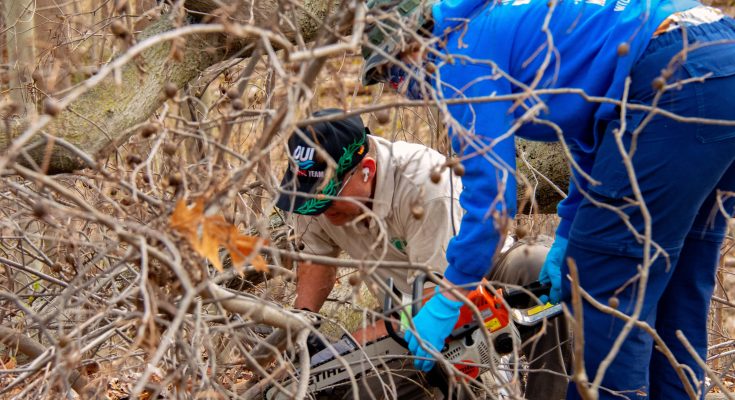Environmental experts welcomed this week what they called a potentially groundbreaking law to restore damaged ecosystems across Europe.
The Nature Restoration Law, which was introduced on 22 June by the European Commission, would require European Union member states revive forests, wetlands and other sea- and landscapes marred by human development.
The European Commission estimates that more than 80 percent of the continent’s habitats are in “poor” shape. Advocates say repairing those ecosystems is crucial to countering climate change and saving species from extinction.
“This proposal lays out a way forward for Europe, but it also provides inspiration for other regions around the world,” said Thierry Lucas, the United Nations Environment Programme’s (UNEP’s) Coordinator for Ecosystems Management in Europe. “This is the first proposal of its kind, as it would make restoration targets legally binding.”
The proposed legislation must still be approved by the European Parliament before becoming law. But experts called its mere introduction a landmark event. By restoring ecosystems, a process that includes everything from planting trees to reviving wetlands, researchers say the worst impacts of climate change can be avoided.
The proposed restoration law comes at a crucial time. Since 1970, wetlands in western, central and eastern Europe have shrunk by 50 per cent. In the last decade, 71 per cent of fish and 60 per cent of amphibian populations have declined. Between 1997 and 2011, the world lost an estimated €3.5 and €18.5 trillion per year in ecosystem services.
“Conserving what’s left of nature is not enough,” said Bruno Pozzi, UNEP Director for Europe. “That’s why the new EU Nature Restoration Law proposal, with an overarching obligation to restore 20 per cent of the EU’s land and sea by 2030, is a strong message to support the UN Decade on Ecosystem Restoration worldwide.”
The restoration law will be discussed in the European Parliament and Council, who will decide if it should be adopted. If passed, it will require Member States to develop national plans to restore at least 20 per cent of EU land and sea by 2030, and repair all ecosystems in need of restoration by 2050. It will also ensure that the decline in pollinator populations is reversed by 2030, that peatlands are rewetted, marine habitats are restored, and river barriers are removed, allowing 25,000 kilometers of rivers to be free flowing.
The proposed legislation comes amid the UN Decade on Ecosystem Restoration, which is led by UNEP and the Food and Agriculture Organization. A broad-based global movement, it is designed to ramp up restoration projects and ensure the world is on track for a sustainable future. Running from 2021 through to 2030 the UN Decade shares the same deadline as the Sustainable Development Goals. Restoring degraded ecosystems is fundamental to achieving the Sustainable Development Goals, mainly those on climate change, poverty eradication and food security.
Through monitoring, guidance on implementation, communications, events, and a dedicated web platform the UN Decade draws together all those interested in restoration. It helps people find projects, funding and the knowledge they need to make restoration a reality.
Restoration is becoming a key solution to the climate crisis. The effort is global, from large-scale initiatives to community-led action. In Pakistan the government has instigated the 10 Billion Tree Tsunami Programme, in the Andes a festival planted over 60,000 trees in one day, in the Appalachian Mountains coal mines are being converted to carbon sinks and in the United Kingdom seagrass rewilding has been happening along the coast.
“We have seen that the UN Decade on Ecosystem Restoration has united people from across the globe,” said Lucas. “What the Nature Restoration Law proposal shows is that restoration also needs regional cooperation and a strong legal foundation.”
#EuropeanUnion; #NatureRestorationLaw





